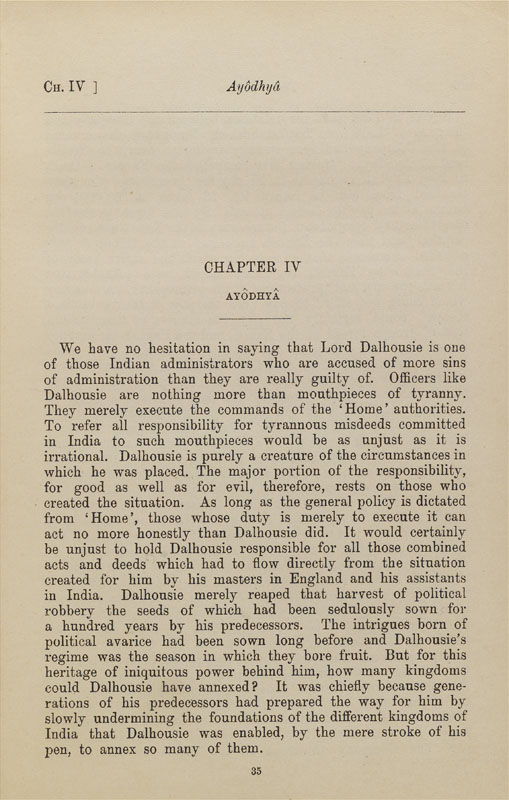Ch. IV ]
Ayodhya
n
CHAPTER IV
AYODHYA
We have no hesitation in saying that Lord Dalhousie is one
of those Indian administrators who are accused of more sins
of administration than they are really guilty of. Officers like
Dalhousie are nothing more than mouthpieces of tyranny.
They merely execute the commands of the 'Home' authorities.
To refer all responsibility for tyrannous misdeeds committed
in India to such mouthpieces would be as unjust as it is
irrational. Dalhousie is purely a creature of the circumstances in
which he was placed. The major poi'tion of the responsibility,
for good as well as for evil, therefore, rests on those who
created the situation. As long as the general policy is dictated
from 'Home', those whose duty is merely to execute it can
act no more honestly than Dalhousie did. It would certainly
be unjust to hold Dalhousie responsible for all those combined
acts and deeds which had to flow directly from the situation
created for him by his masters in England and his assistants
in India. Dalhousie merely reaped that harvest of political
robbery the seeds of which had been sedulously sown for
a hundred years by his predecessors. The intrigues born of
political avarice had been sown long before and Dalhousie's
regime was the season in which they bore fruit. But for this
heritage of iniquitous power behind him, how many kingdoms
could Dalhousie have annexed? It was chiefly because gene¬
rations of his predecessors had prepared the way for him by
slowly undermining the foundations of the different kingdoms of
India that Dalhousie was enabled, by the mere stroke of his
pen, to annex so many of them.
35
|








